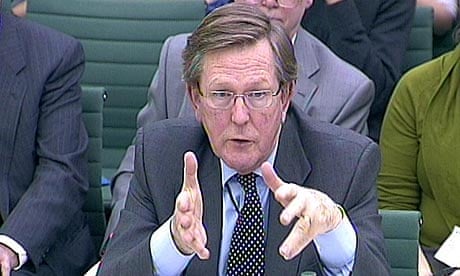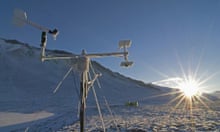Sir Muir Russell has written the final chapter on "climategate". At least, the final official chapter. Bloggers, hackers, and sceptics will pore over his findings to dissect and destroy his carefully weighed conclusions. Already his Independent climate change email review is being branded a whitewash. In fact, the Russell review is nothing of the sort.
It is a forensic and deeply critical analysis of what took place in the climatic research unit at the University of East Anglia over many years. Russell concludes that the university fell badly short of its scientific and public obligations. It needs radical reform.
The allegations against climate scientists were that they perverted and corrupted the tried and tested processes and procedures of science. They supposedly manipulated data, suppressed research they didn't like, bullied colleagues, threatened editors of scientific journals, and let their political views trump their scientific instincts.
The Russell review has rejected all claims of serious scientific misconduct. But he does identify failures, evasions, misleading actions, unjustifiable delays, and pervasive unhelpfulness – all of which amounts to severely sub-optimal academic practice. Climate science will never be the same again.
As important as climategate is, Russell's findings matter well beyond climate science. His report deserves scrutiny by all scientists, scientific organisations (such as the Royal Society), and universities that support scientific research.
What Russell has identified is the beginning of a revolution in the way science is being done. If scientists don't adapt to this revolution soon, the trust that the public and politicians put in science will be jeopardised. The credibility of science itself is at stake. So, what are the elements of this revolution?
First, climategate reveals the urgent demand by a new breed of citizen-scientist for access to the raw data scientists use to do their work. Simply accepting a scientist's assurance that data are accurate and reliable is no longer enough. Scientists will have to make their data available for independent audit.
Second, climategate shows that science must change its idea of accountability. Traditionally, scientists have been accountable only to one another. But with the advent of new critical public voices in science – the birth of the blogosphere, for example – scientists must redefine who is a legitimate critic and who isn't. It is easy to brand the blogosphere as universally damaging and defamatory. But climategate has shown that while some critics do enjoy abusing scientists, others ask tough and illuminating questions, exposing important errors and elisions. These critics have an important part to play in shaping scientific debate and dialogue.
Third, scientists need to get over their fear of uncertainty. The orthodox scientific view is that policymakers abhor a vacuum of facts. They want certainty, not probability. Scientists, trying to be helpful, may too often pander to that wish. Instead, they should resist it.
The world is complex. Its problems are not always easily reduced to one straightforward solution. Scientists need to do more to emphasise their uncertainties, not recoil from them. Uncertainty may be uncomfortable, but its admission builds trust. It demonstrates integrity. One of science's great strengths is its quantification of doubt.
Fourth, scientists need to take peer review off its pedestal. As an editor, I know that rigorous peer review is indispensable. But I also know that it is widely misunderstood.
Peer review is not the absolute or final arbiter of scientific quality. It does not test the validity of a piece of research. It does not guarantee truth. Peer review can improve the quality of a research paper – it tells you something about the acceptability of new findings among fellow scientists – but the prevailing myths need to be debunked. We need a more realistic understanding about what peer review can do and what it can't. If we treat peer review as a sacred academic cow, we will continue to let the public down again and again.
Finally, scientists should be educated to embrace this new culture of science, not fear or resist it. A scientist's training will need to include ways of engaging citizen scientists constructively, making their data more widely available, putting uncertainty at the forefront of their work, and managing public expectations about what science can do.
The Russell review is the catalyst science needs for a thorough reappraisal of some of its most enduring and fundamental assumptions. Out of that re-examination will come a stronger and more sustainable scientific enterprise – one that the public will continue to put trust in. It's time for science to take that first step.




